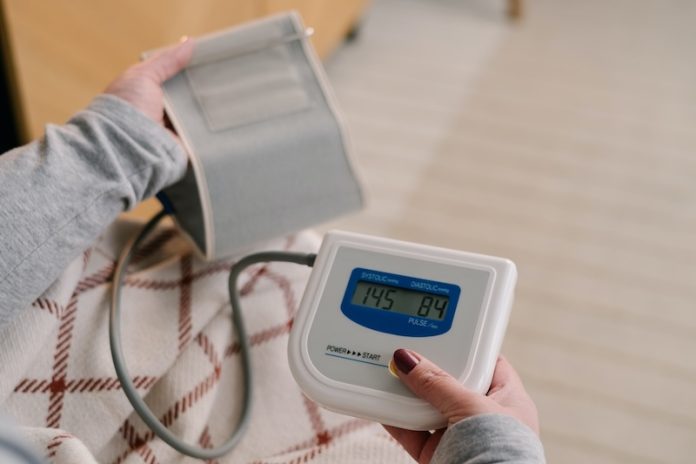
High blood pressure, a prevalent global health concern affecting approximately 4 in 10 people, is a significant risk factor for cardiovascular diseases.
While medications are available for its management, an international panel of experts from 18 countries, including Professor Bryan Williams of UCL, has released a comprehensive position paper advocating for a more holistic approach to preventing and managing high blood pressure.
Published in the Journal of Hypertension, this paper is grounded in the latest scientific evidence and offers insights into a broader spectrum of strategies for blood pressure control.
Going Beyond Traditional Approaches
In addition to well-known lifestyle modifications such as adopting a healthy diet, engaging in regular exercise, and quitting smoking, the position paper highlights lesser-known but effective interventions:
Mindfulness Practices: The experts recommend practices like meditation, yoga, and muscle relaxation techniques as effective means of managing stress, which, in turn, can contribute to lower blood pressure.
Sleep Quality: The paper stresses the importance of examining various aspects of sleep, including its duration, timing, and quality. It calls for increased public awareness campaigns to promote better sleep habits.
Air Pollution: Strong evidence supports a dose-response relationship between exposure to air pollution and blood pressure. The panel recommends individuals to exercise in less polluted areas and urges governments to take action to improve air quality.
A Holistic Approach to Hypertension
The panel’s approach to hypertension management transcends traditional boundaries, aiming to address all aspects of health. Lifestyle interventions are often preferred as the first line of treatment, with medications as a secondary option.
Professor Bryan Williams noted, “The evidence supporting these interventions is accumulating, and everyone should find some time in their day to relax and decompress, as it significantly contributes to cardiovascular health.”
Lead author Professor Fadi Charchar from Federation University, Australia, emphasized that their goal was to provide a “holistic set of recommendations” that encompass all facets of health.
The Importance of Self-Care
The authors emphasize that self-care measures are not a substitute for medical treatments but rather play a vital role in hypertension management. Lifestyle changes may not be as dramatic as medication but can substantially improve cardiovascular health.
The position paper offers specific exercise recommendations, encompassing aerobic activities like brisk walking and running, strength training, and isometric exercises such as hand grip exercises.
The experts urge population-based campaigns to raise awareness about these lifestyle interventions. They stress the need for collective action, including governmental initiatives to enhance air quality.
Professor Charchar summarized, “Prevention is better than cure. By focusing on these lifestyle changes, we aim for a more comprehensive approach to managing hypertension.”
In conclusion, the international panel of experts presents a compelling case for a holistic approach to high blood pressure management, drawing attention to evidence-based lifestyle interventions and emphasizing their significant impact on cardiovascular health.
Their recommendations offer hope for improved hypertension management and better overall well-being.
If you care about blood pressure, please read studies about unhealthy habits that could increase high blood pressure risk, and eating eggs in a healthy diet may reduce risks of diabetes, high blood pressure.
For more information about blood pressure, please see recent studies that early time-restricted eating could help improve blood pressure, and results showing 12 foods that lower blood pressure.
Follow us on Twitter for more articles about this topic.
Copyright © 2023 Knowridge Science Report. All rights reserved.



